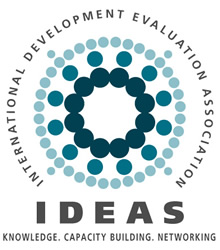In July 2016, the United Nations Evaluation Group (UNEG) launched the updated 2016 UNEG Norms and Standards.
This publication is now available in all six UN official languages (French, Spanish, Arabic, Russian, Chinese and English) at www.unevaluation.org/2016-Norms-and-Standards. The translation review was done with support of UNEG members and International Organization for Cooperation in Evaluation (IOCE).
The updated 2016 UNEG Norms and Standards for Evaluation, a UNEG foundational document, is intended for application for all United Nations’ evaluations. It sets out shared principles based on good practices in managing, conducting and using evaluations. The ten general norms should be upheld in the conduct of any evaluation; the four institutional norms should be reflected in the management and governance of evaluation functions. The associated standards support the implementation of these normative principles.
The UNEG Norms and Standards was first adopted in 2005. Since then, they have guided the UN evaluation community and widely recognized by member states and the global evaluation community.
The last decade has witnessed many global, regional and national changes, as well as innovations in the practice of evaluation. In 2015, the Sustainable Development Goals and the 2030 Agenda for Sustainable Development were adopted by the international community. The 2030 Agenda calls for robust, transparent, participatory follow-up and review mechanisms based on country-led evaluations. 2015 was also the first-ever International Year of Evaluation, while in the preceding year, the United Nations General Assembly called on the UN to support “Building Capacity for the Evaluation of Development Activities at the Country Level” (Resolution 69/237).
The 2030 Agenda for Sustainable Development carries important implications for the evaluation functions of United Nations agencies and for evaluation across the United Nations system as a whole. In 2016, responding to the new agenda and to increasing demands for accountability and national ownership in evaluation, UNEG adopted the updated Norms and Standards for Evaluation. The updated Norms and Standards are forward-looking, providing an aspirational and progressive framework to enhance evaluation activities across the entire United Nations system.
It is hoped that the 2016 UNEG Norms and Standards will contribute towards strengthening and harmonizing evaluation in the United Nations system and provide a useful framework for national level evaluations and the global evaluation community.
The United Nations Evaluation Group (UNEG) is a professional network that brings together the offices responsible for evaluation in the UN system, including the specialized agencies, funds, programmes and affiliated organizations. UNEG currently has 47 such members and three observers. UNEG aims to foster independence, credibility and usefulness of the evaluation function across the UN system, promote the importance of evaluation for learning, decision-making and accountability, and support the evaluation community in the UN system and beyond.


